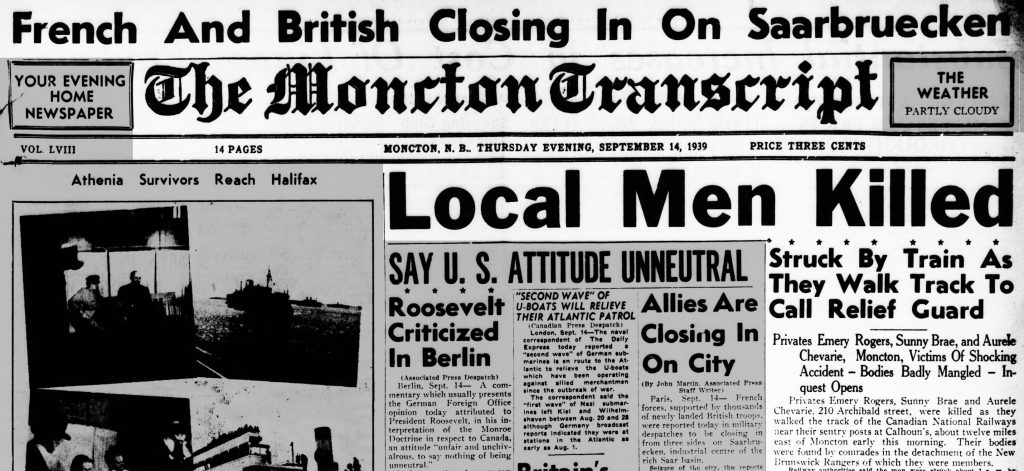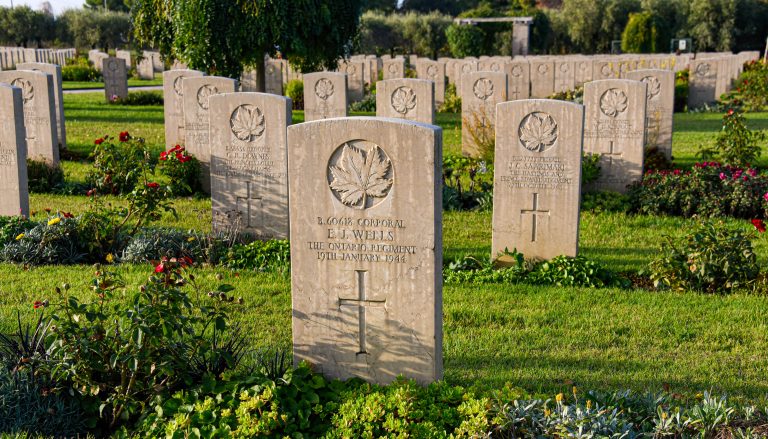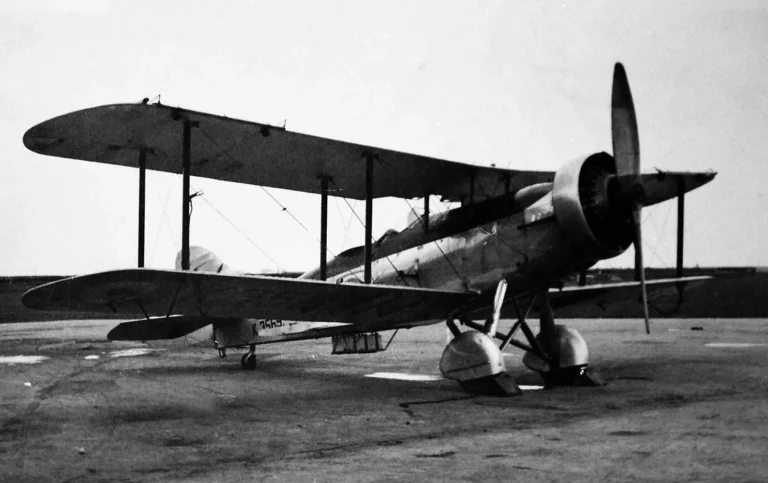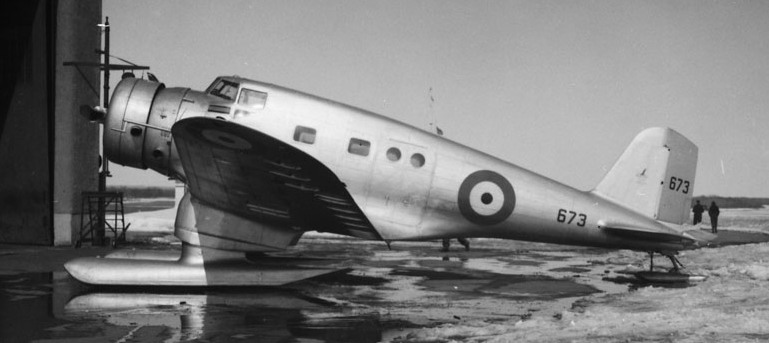1939-Sep-14 | Private Aurele Chevarie | Corporal Emery Rogers | New Brunswick Rangers
Corporal Emery Rogers and Private Aurele Chevarie were both proud to be part of Moncton’s local militia unit, the New Brunswick Rangers. Chevarie had been in the army cadets as a boy but pursued a career as a bookkeeper. At 26 years of age, he was the primary earner at home. His father had been injured and was unable to work and two of his three sisters were both in school. He signed up to be a soldier with the Rangers at the end of August and after two quick weeks of some basic soldier training, he reported for duty on the 10th of September – the day Canada declared war on Germany.
Corporal Rogers was younger – only 21 years old but had been in training for over two years and was on his way up the ranks. He had attended the summer militia training camps at Sussex, NB for the past three years and at the end of August signed up to be a part of the Canadian Army Standing Force – the full-time army. He was promoted to Lance Corporal on the 1st of September – the first step in becoming a junior leader.
Their squad was assigned the task of guarding a railway bridge at Calhoun, south of Moncton. It was not that they expected a fifth columnist to appear and blow it up, but standing guard is just one of those duties that armies around the world undertake. It’s an excellent training vehicle for developing some martial skills – attention to detail, discipline and adherence to orders amongst them.
Corporal Rogers was one man short for his guard detail as one of his soldiers was sick and confined to his tent. He would have to also stand a guard post, which he did quite happily. It was 11:00 PM when he sent two of his soldiers to bed, and he and Chevarie would stand the first watch and wake the others at 12:45 to take the next two-hour shift.
Rogers was going to stand guard at the east end of the bridge, and Chevarie the west. Their “beat” did not require them to cross the bridge and indeed Lieutenant Stanley, the platoon commander, had told them to stay clear of the bridge.
At 20 past midnight, the fast freight coming from Moncton to Truro, Nova Scotia blew its whistle as it went through Meadowbrook station and then again as it started down the hill towards the bridge where the New Brunswick Rangers were standing guard. The smoke from the steam engine was drifting in and out of the cab and hanging low along the train as it made its way down the hill. Although the engine’s light was working fine, the engineer did not have a clear view of the bridge.
The train rumbled across the bridge and again blew its whistle and then disappeared into the night towards Sackville and points east. When the train arrived at Springhill Junction, one of the stokers on the train pointed out what looked like a small piece of flesh stuck into part of the train. No sign of anything else could be found on the rest of it.
At 4:15 AM, Private White woke up with a start and noticed that they had not been woken up to stand guard. He and his fellow soldier went looking and found the rifles beside the bridge and then spotted the bodies in between the tracks. A board of inquiry was held but without an eyewitness, they could only draw some conclusions.
Private Chevarie was coming across the bridge towards Corporal Rogers when he slipped and fell through the ties. The sound of the oncoming train caused some panic, and Rogers raced onto the bridge to try to free his man. One boot was undone but the other was still caught and then the train was upon them.
Private Chevarie had only been in the regiment for five days. Corporal Rogers, well-known and well-liked, had his promising career cut short. These two were the first on-duty deaths in the Canadian Army, four days after the war started.
The New Brunswick Rangers would also suffer another accidental death later in September 1939 when a Private Milton was accidentally shot by a comrade as he entered his tent. Although there were three other men in the Canadian Army who died in the first few days after the declaration of war on 10 September (in Canada) they did not die “on duty”.



